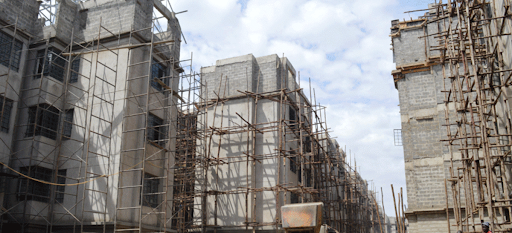

Developers of new buildings will be required to set aside
zones for the installation of solar energy systems under a proposed law aimed
at promoting environmental sustainability and climate resilience in Kenya’s
construction sector.
The National Construction Authority (Amendment) Bill, 2025, seeks
to establish green building practices and enhance resilience against climate
change risks.
“The construction sector plays a crucial role in the
development of Kenya's infrastructure and economy. However, it also
significantly impacts the environment and is vulnerable to climate change
risks,” the Bill notes.
The Senate Roads, Transportation and Housing Committee
chairman and Migori Senator Eddy Oketch sponsored the Bill.
If passed, the National Construction Authority (NCA) will,
in consultation with relevant agencies, designate zones within which all new
buildings must provide space for solar energy systems.
The zones will include areas that receive sufficient daily
sunshine to support effective solar generation. The Cabinet secretary will
develop regulations for implementation.
Beyond solar adoption, the Bill proposes a wide range of
climate-responsive mechanisms.
The proposed law advocates for building designs that
withstand extreme weather conditions, which incorporate green spaces and
natural buffers.
It pushes for the implementation of energy-saving
technologies and designs, the utilisation of renewable energy sources and the adoption
of water-efficient appliances and systems.
It emphasises rainwater harvesting and greywater recycling,
and the use of recycled, renewable and locally sourced materials.
It provides for minimising waste through efficient design
and construction practices as well as preservation of existing natural habitats
and ecosystems.
“These amendments ensure that standards, guidelines and
regulations developed by the National Construction Authority for the
construction industry include mechanisms that address climate change risks,” the
Bill states.
“These amendments ensure that standards, guidelines and
regulations developed by the National Construction Authority for the
construction industry include mechanisms that address climate change risks,”
the Bill states.
By doing so, the industry will be encouraged to reduce its
environmental footprint and enhance resilience against climate change effects.”
He said the measures will enable the sector to adapt
to changing environmental conditions while contributing to national efforts to
mitigate climate change impacts.
INSTANT ANALYSIS
The National Construction Authority regulates and coordinates the development of Kenya's construction industry by registering projects and contractors, accrediting skilled workers and supervisors, enforcing quality standards and codes of conduct, and building the sector's capacity through training and research. Its overarching goal is to foster a prosperous, innovative and well-coordinated construction industry contributing to the country's sustainable socio-economic development.













